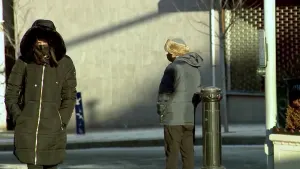More Stories
It’s
a serious problem for many renters: mold in an apartment, especially during the
hot summer months, and forcing a landlord to fix it isn’t always as easy as
you’d think.
Kane
In Your Corner receives a lot of complaints from renters about their living
conditions.
If
you live in New York City, the answer is clear: landlords who have buildings
with three or more apartments are required to keep them free of mold.
Everywhere
else, it’s a little trickier. New York State, New Jersey and Connecticut all
have laws saying apartments must be safe to live in, but there’s no legal limit
for mold like there is for lead where once you go above it, it’s unsafe. Each
case has to get handled individually.
So,
what do you
do if you have black mold in your apartment?
Experts
say the first step is to notify the landlord. If they don’t fix it, you can
call your local health or building department or go to court. You’re allowed to
sue for medical bills, damage to property and pain and suffering.
But
a couple of things to keep in mind. First, the mold typically has to be the
landlord’s fault, not the result of something you did. Also, a lot of people
say, “I’m not going to pay my rent unless this gets fixed”. If you’re thinking
of doing that, you might want to talk to an attorney first because there’s a
right and a wrong way to withhold rent. If you do it the wrong way, you can get
evicted.
If you have a consumer question
or a story that needs to be investigated, click here to see how you can get
Kane in Your Corner.
More from News 12
1:31

What's Cooking: Uncle Giuseppe's Marketplace's prime rib roast
1:27

What's Cooking: Uncle Giuseppe's quiche lorraine
2:34

Guide: Safety tips to help prevent home burglaries
0:48

How to protect yourself against frostbite during arctic chill
2:19

Guide: Safety measures to help prevent fires and how to escape one
2:07
